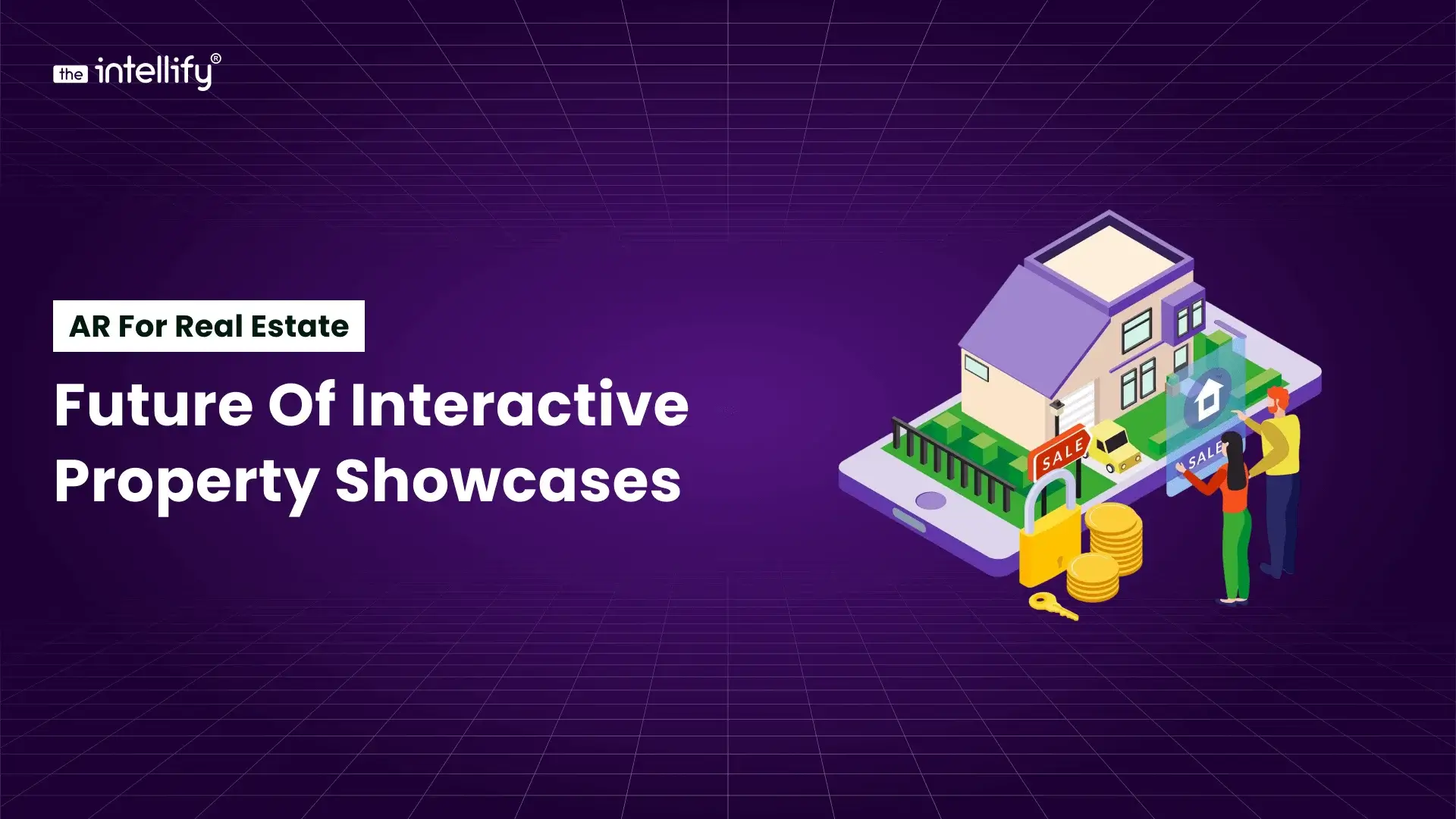
Today, the real estate industry is improving with the help of new technology. Mobile applications are one of the major aspects of this shift. Real estate mobile app development has become crucial for such businesses.
This guide has all the information you need. It will help you create a real estate mobile app. Here, the reader will find basic facts. These include app classification, key features, and the app creation process.
Some Statistics About the Usage of Real Estate Mobile App Development
Real estate mobile apps are booming. 97% of homebuyers used the internet last year, with 76% relying on mobile devices. Zillow reports that 44% of customers house hunt online, and 70% use real estate apps.
The global real estate software market, valued at $9 billion in 2021, is expected to grow by 8% next year and 9% annually until 2030. Apps with features like tours and maps are 50% more engaging, and 73% of buyers prefer user-friendly apps with accurate property details.
Importance of Real Estate App Development
Enhanced User Experience
A good example of an efficient real estate app design development is one where users search for properties. And they receive accurate results with images. It can also lead them to virtual tours. These actions take place online. They may include virtual shopping, learning, working, and more. The findings also show buyers, sellers, and agents can find the app useful. This continues to entertain and meet users’ needs.
Increased Reach and Accessibility
Real estate businesses help to expand the circle of contacts. Users can access property information at any one time or any other time. They are not required to attend physical stores or use several websites. Thus, it becomes easier for the users, and at the same time, it enhances their interest.
Streamlined Operations
Real estate app features can help automate multiple tasks. They can help check rent payments, arrange maintenance, and control communication with tenants. This helps to reduce the workload as well as improve the efficiency of the network. In apps, CRM tools assist agents in managing clients.
Competitive Advantage
A mobile app for your business is a plus. It shows your clients that you know modern technology. And you’re ready to offer them the best services. A good app also promotes your brand while at the same time attracting more clients. Virtual reality tours are a special bonus. They help you stand out from the competition.
Valuable Data and Analytics
This is relevant because a mobile app provides valuable information on users’ activity. Use this method. It will help you find the properties in higher demand and the features users prefer. Data-driven marketing decisions enable you to make informed choices.
Cost Efficiency
Real estate mobile app development is costly. Yet, an organization must note that long-term benefits offset the upfront cost. Automation replaces tasks, leading to their conservation. Virtual tours have reduced the number of showings, cutting time and costs. Payment gateways also streamline transactions by allowing them to be completed online.
Better Customer Engagement
Mobile apps help to keep customers. Users get notified through the push notifications of new listings and changes. The in-app messaging enables direct communication between the users and the agent. Several real estate businesses make users come back to the app so often.
Scalability
A mobile app is an asset that expands according to the development of your enterprise. As the number of properties you list grows, new features of the application can be added. This makes the app to remain useful to the user. This also enables you to respond to shifts in market trends and the needs of the users in the market.
Types of Mobile Apps for Real Estate
Different categories of Mobile Application for Real Estate are as follows:
As mentioned before, real estate mobile apps can be of different types. They depend on the needs of the industry. The following offers a brief explanation of the main categories of this study. Every one of them is intended to serve a particular purpose.
Buyer and Seller Apps
Thus, Buyer and Seller Apps enable property dealers to make their transactions. One of the functionalities of these apps for buyers is property listing. It also has good-quality images and virtual tours. The site provides an option for sorting the properties by location, price and size of the house.
It can also notify the users about new listings based on their search parameters. Buyers have an advantage. They can search for properties for sale and reach the sellers. Direct communication in the app enables the buyers and sellers to negotiate.
All these apps enhance the buying and selling process in a way. It also optimizes the performance of the apps and makes them easier to use. Sellers can get to even more potential consumers.
Agent and Broker Apps
Agent and Broker Apps are developed for the agents. They are beneficial to the agents and brokers in the management of the business. The CRM tools assist the agents in having records of their respective clients. They also have records of previous communication experiences with them.
The features enable the agents to input, change, as well as remove listings. Calendar applications help in scheduling showings and meetings. In-app messaging and calling assist the agents. They use them to have discussions with clients.
These apps simplify daily tasks for agents and brokers, proving very useful.
Rental Apps
Rental apps are for both property owners and renters. They help with the renting process. The website will enable landlords to post the available houses and units they have for rent. They can use it to search for houses to rent. These applications make it easier to apply for and get a house.
This functionality allows the tenants to apply for tenancy in the app. It allows the landlords to make assessments on the applications. Online payment facilities allow tenants to pay rent on the Web. This makes transactions to be fast and secure. The request features let the tenants report the problem. It is employed by landlords to contain the issues.
These real estate app features also assist in making the process of renting to be easier for the two parties. It also benefits landlords and tenants as well. It allows landlords to manage their estates. The tenants can readily acquire houses to live in.
Property Management Apps
Property Management Apps are very useful. They help managers who manage many units. These apps offer tools for the completion of several tasks. This includes tenant management. It also includes managing when maintenance will be done. Besides, it deals with accounting financial and communication.
Profile management tools allow the property managers to manage the tenants’ details. It also follows the lease arrangement and records of its payment. Scheduling maintenance lets properties be managed properly. It ensures the right maintenance.
Additionally, fintech app development offers diverse approaches used in the management of a business’s financial affairs. They check the income as well as the expenditure and also prepare reports. This eradicates the issue of having to deal with middle management. They may spend a lot of time responding to the problem.
They enhance property management, making it better managed and more organized. This change improves the business’s efficiency and productivity.
Investment Apps
Investment Apps are programs for real estate mobile app developers. They include market analysis. They also have a tool for managing a portfolio. They have financial tools and notifications. Market analysis features include trends, values and investment options of the properties. Investors need portfolio tools.
They use them to track properties and see how they are doing. Mortgage and ROI calculators are some financial tools. They help with decision-making. The alerts and notifications provide updates. They tell investors about market changes and new listings.
These apps assist investors in making better investment decisions. It also assists them in making the right decisions when it comes to portfolio management.
Real Estate Marketplace Apps
Real Estate Marketplace Apps are the interfaces. Through them, buyers, sellers, and landlords can interact. The apps contain property listings. They also have users’ profiles, reviews, and services.
All these features are integrated. A large property inventory allows one to meet any need and choose an option for any wallet. The profiles help establish interaction. They also help in sharing information.
Opinions assist users in making the right decision by pointing out the pros and cons of a product. Some bundled services include mortgage help, moving, and legal aid.
These apps offer users all the necessary services in the sphere of real estate. It gathers different users into one place or one application.
Smart Home Apps
Smart Home Apps are applications that connect real estate with smart home solutions. The above-mentioned applications provide home automation, energy control, security and customization options. People can interact with lighting, heating, and security systems, to name a few.
Energy managing tools control power usage for improvement of energy use. Security features consist of notification and surveillance of security cameras. The settings enable users to set their home environment to their desired mode.
They increase the worth of properties that they are developed on. They are technologically enhanced and befitting the modern trend of home building.
Steps to Develop a Real Estate Mobile App
- Market Research and Planning
The first step is to submit a real estate application for mobile devices. You must conduct market research. This involves analyzing the target market. Understanding their needs and desires enables understanding of their needs and desires.
You also have to identify the competitors. This will enable you to create a clear plan for businesses. It will outline its features, appearance, development process, and timeline.
- Design and Prototyping
After planning, the next step is making the app look and feel. This means the user interface and user experience. Wireframes and prototypes are useful. They help design the app’s look and what it will do. This stage consists of three sub-stages. They are choosing a hue and shade, typeface, and graphic details. They should not contradict the brand image.
- Development and Testing
In the development phase, you write the front-end and back-end of the application. Front-end development is also concerned with the users. It focuses on the interfaces they interact with. Back-end development processes include the creation of databases, servers, as well as API. Testing should thoroughly cover this important phase. It locates and corrects errors.
- Deployment and Maintenance
After development and testing, the distribution. You can find the app here in app stores. This location places the application in app stores. These are Google Play and the Apple App Store. After that, it will be accessible to the user. They deploy it, then check and refresh it with ongoing frequency.
They guarantee the app works well. They integrate innovative solutions and patch vulnerabilities with regular updates. Selecting the Best Company to Develop a Real Estate Mobile Application.
- Experience and Expertise
It is important to find a company with a lot of experience. They should also have plenty of skills. To achieve the best results, you need this. They should specialize in creating real estate mobile applications. See their portfolio. It will show samples of similar projects they have worked on before.
- Customization and Flexibility
Select a company that allows alterations and adaptations to the plan. You can configure it according to your needs and preferences within an app. Avoid firms that offer standard solutions. They do not understand your specific requirements.
- Technical Support and Maintenance
Make sure the company is ready to offer ongoing technical support and maintenance. This is important when problems arise after the system is implemented. It also ensures that the app always has the latest features and enhancements.
- Client Reviews and Testimonials
Check the research client’s feedback. See other clients’ experiences. They are a way to assess the company’s credibility. The recommendations given by former clients can boost your morale. This proves their ability to develop a quality app meeting the intended purpose.
Conclusion
For real estate professionals, mobile apps serve as a hub. Real estate apps streamline listings, client communication, and financial management. This saves time and money. It enables agents to focus on core business. Clients enjoy 24/7 access to property listings and virtual tours.
They can connect directly with agents. They can access rental application processes and investment information. These things empower them in their real estate journey.
Furthermore, real estate mobile apps are not static entities. As technology evolves, these apps can be upgraded. They can add features like the latest Augmented reality solutions, VR Virtual tour features and AI-enabled market analysis tools.
These features cater to the growing segment of tech-savvy clients. This constant innovation creates a sense of community within the app. The app has features, including user profiles, reviews, and ratings. These features foster valuable word-of-mouth recommendations.
Want to turn your ideas into powerful Android apps?
Contact us at The Intellify, the leading real estate mobile app development company in USA. Our experts can create custom app development solutions for your business.
They will be tailored to your business’s needs. We have a strong track record of delivering innovative and effective apps. Get in touch with us today!

Written By, Jalaj Shah
The COO and Co-Founder of The Intellify. Jalaj enjoys experimenting with new strategies. His posts are fantastic for businesses seeking innovative development ideas. Discover practical insights from his engaging content.


Augmented Reality Storytelling: Turning Brand Stories into Immersive Experiences
Summary: This blog explores how Augmented Reality Storytelling helps brands create deeper engagement through immersive, interactive experiences. It explains what AR storytelling is, how it works, real-world brand examples, key benefits, and common use cases across industries. The article also covers essential features of an AR storytelling app, how to choose the right AR app […]


Augmented Reality for Real Estate: Future of Interactive Property Showcases
Summary: This blog explains how augmented reality for real estate is transforming the way properties are showcased and explored. It covers what AR property experiences are, how they help buyers visualize spaces more clearly, and where they fit into modern real estate marketing. The article also highlights key benefits, real-world use cases, development considerations, costs, […]


Fuel Delivery App Development: A Complete USA Guide
Summary: This blog covers everything you need to know about fuel delivery app development, including how on-demand fuel delivery works, key features, costs, and legal considerations in the USA. It explains how businesses can build, launch, and scale a fuel delivery app while ensuring safety, compliance, and smooth operations. Whether you’re planning a new fuel […]


Augmented Reality Storytelling: Turning Brand Stories into Immersive Experiences
Summary: This blog explores how Augmented Reality Storytelling helps brands create deeper engagement through immersive, interactive experiences. It explains what AR storytelling is, how it works, real-world brand examples, key benefits, and common use cases across industries. The article also covers essential features of an AR storytelling app, how to choose the right AR app […]


Fuel Delivery App Development: A Complete USA Guide
Summary: This blog covers everything you need to know about fuel delivery app development, including how on-demand fuel delivery works, key features, costs, and legal considerations in the USA. It explains how businesses can build, launch, and scale a fuel delivery app while ensuring safety, compliance, and smooth operations. Whether you’re planning a new fuel […]


How to Build an Instant Delivery App Like Blinkit & Zepto: Step-by-Step Guide
Summary: This blog explains how instant delivery apps like Blinkit and Zepto work, why the quick-commerce model is growing, and how you can build your own platform step by step. It covers features, technology, business models, costs, timelines, and common challenges. You’ll also learn what’s required for real-time delivery, dark-store operations, and logistics planning. If […]
0
+0
+0
+0
+Committed Delivery Leads To Client Satisfaction
Client Testimonials that keep our expert's spirits highly motivated to deliver extraordinary solutions.

















